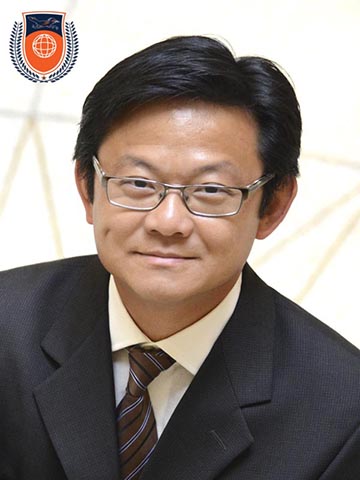Yufei Huang is a Professor and Associate Chair of Research in the College of Engineering Department of Electrical and Computer Engineering.
Please tell us about yourself.
I have been with UTSA and ECE for almost 18 years, since 2002. I came to UTSA from the University of Stony Brook, where I studied and conducted research in statistical signal processing and machine learning as a Ph.D. student and then a postdoc researchers. I am happily married and have a 17-year-old son, who is very busy preparing for the SATs and college applications.
What is your job title and what do you do?
I am now Professor and Associate Chair of Research of Electrical and Computer Engineering. I am also an adjunct professor of Population Health Science at UT Health San Antonio. In my duty as a professor, I teach both graduate and undergraduate courses, lead a research lab where I supervise Ph.D., M.S., and undergraduate students to conduct public and private funded research projects and provide service to the operational and developmental needs of the department, college, and university. As Associate Chair of Research, I assist the ECE Chair, Dr. CJ, to form ECE research policies, promote ECE research, and manage ECE research activities.
What brought you to UTSA?
UTSA attracted me because of its location in a big city and its aspiration to become a top-tier research university.
Tell us about your research and what led you to your field .
I research the area of Computational Intelligent Biology, an area where we apply Artificial Intelligence (AI) and machine learning to analyze the interrogate high throughput biomedical data to improve our understanding of biological systems. I research these topics because of my training in machine learning and statistical signal processing and my passion for understanding biological systems and improving human health.
What do you want the public to know about your research? Why is your topic important?
I currently focus on two topics: 1) epitranscriptome and cancer, where I study modifications of mRNAs and their roles in regulating cancer and the cancer vial infection; 2) AI for precision oncology, where I study how to use AI to accelerate drug prediction, provide early diagnosis and prognosis of cancer, and improve our understanding of cancer. They are among the most active areas of AI and biological research, and they are important because they can contribute to improving our understanding of cancer biology and cancer therapy.
What is the most challenging part of your job?
Staying at the forefront of the research area and acquiring funding continuously to support the research.
What inspires you?
Why and how. I am inspired every day by many intriguing questions about why biology acts the way it does and how we can understand it by using AI and machine learning.
What is your favorite quote?
None yet and still searching.


